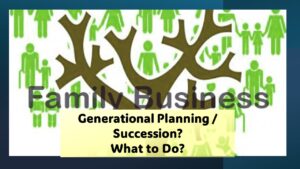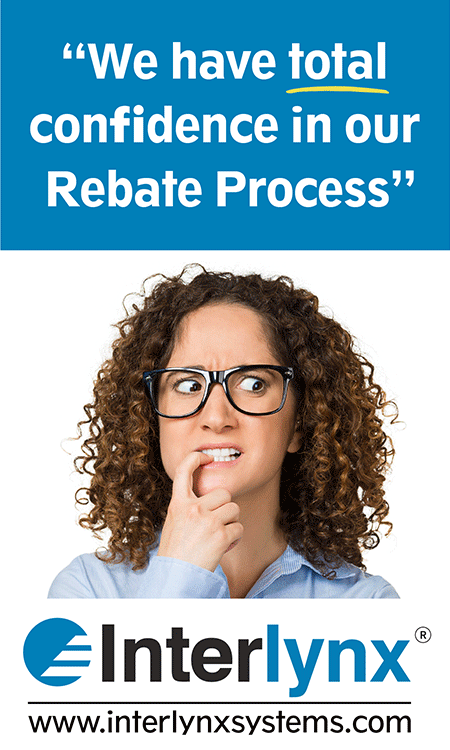Meghan Juday on Family Business Succession Planning
 Since 2020 the electrical distribution industry has seen 102 (or so) distributors sell their business. Additionally, we’re seeing manufacturer representatives and lighting agents undergoing ownership transitions. In many instances it is due to lack of family business succession planning.
Since 2020 the electrical distribution industry has seen 102 (or so) distributors sell their business. Additionally, we’re seeing manufacturer representatives and lighting agents undergoing ownership transitions. In many instances it is due to lack of family business succession planning.
You can imagine the scenario for a distributor …
- The business is second or third generation
- The second generation started in the business “pushing a broom during the summer” or regularly came into the office.
- The third generation … didn’t know how to get to the office and may not know what a warehouse is (okay, I’m being facetious).
- The business has grown over the years. It’s been a wealth generator for the family and has provided employment for many.
- The third generation did the right things and invested in the business, but
Now looks around and says, “who am I going to groom?”
For a rep / agent, it is similar. Many agencies only make it through two generations because there is no third generation that was ever exposed to the business. Frequently the business is “sold” to a minority partner or a VP Sales or a top salesperson under the pretense that “manufacturers want stability.”
With that comes the question of what to do with the business. Options include:
- Sell to a competitor
- Sell to someone who wants to enter into your market
- Consider an ESOP (but do you have the right staff to ensure a longer-term payout? Is now the right time? Do you know enough about the financial benefits of an ESOP and how to set one up?)
- Sell to private equity or sell them a stake in the business (but how long do you want to stay?)
- Sell to your management team (but you’ll probably need to take some “paper” back)
- Or you can think of other esoteric models that involve foundations and trusts.
An alternative is that the family can keep the business and have non-family management run the business.
This is not uncommon within the manufacturing community (in electrical, think Milbank, IDEAL Electrical, Electri-flex, Arlington as four examples of quality companies.) There are some in the distribution (Crescent Electric, Granite City Electric to name two).
Recently Meghan Juday, Chairman of the Board of IDEAL Industries, Inc, and whose family owns IDEAL Electrical, among other businesses, and speaks / writes and advocates for family businesses, shared thoughts on family businesses.
Family Business: Beating the Odds of Transition
If you’re committed to keeping your business family-owned, the odds are stacked against you. Research by the Family Business Institute shows that 12% of family businesses remain family-owned through the 3rd generation, and only 3% make it to the 4th.
But family businesses tend to outperform public companies. If there’s a competitive advantage to being family-owned, why don’t you see that advantage reflected in the increased success of companies through the 4th generation?
There are several business reasons why a family business wouldn’t make it to the 4th generation–a failure to adapt to a changing market, lack of innovation or entrepreneurial spirit in a family, or poorly-managed conflict within the family. There are also several ways in which the family makes it difficult to transition the family business to the next generation.
Family vs. Non-Family Management
Families tend to think that to be a family business; you have to have a family member as CEO or chairman of the board. That is often optimal for the family but may not be optimal for the business. That’s because most family members gain their business experience inside that business. If you’re not providing external opportunities for these individuals to grow in other companies, it means you aren’t building the talent to take your company to the next level.
To combat this problem, many families bring in high-level outside management such as an outside CEO who may have worked in a much more complex business environment or even a public company. This provides an independent view of the business but also boosts the company’s available talent, expertise, and discipline.
Communication and Decision Making
Leadership styles can also have a big impact on family business success. Often, during the first generation, the company founder makes all the decisions, and the family goes along with it. No problem–it’s his or her company, and everyone just agrees. In the 2nd generation, often that leadership model and decision-making model persists because the family is not so big, they understand the founder’s wishes, and maybe the founder is still alive. It’s easy for the 2nd generation to keep that decision-making model.
In the 3rd generation, one of the big challenges is that the 3rd generation doesn’t want to make decisions the way the 2nd generation did. But they also don’t have the strong natural family connections the previous generations enjoyed. The stakeholders are no longer connected by shared parents or grandparents. The connections are becoming more tenuous. There are cousins, and there are nieces and nephews. There’s not that natural familial power that allows that person to be the patriarch of the family. The owners of the company are more peers with each other. The leader may be a cousin, rather than a grandparent, so it’s not as natural for them to get away with being an autocrat.
At this stage, the family needs to change their decision-making model and even the culture of the family to be very inclusive, open, and transparent. If some members of the family fail to make this change, you will inevitably begin a cycle of conflict with a third-generation leader.
Succession Planning
Succession planning can also sabotage the long-term survival of a family business. It’s natural for the leader in any generation to choose the person who closely matches their own skills and capabilities. But it’s not necessarily a good thing to have a leader who is too similar to their predecessor.
When you have a 70-year-old leader looking at that next generation, they look for the person who looks most like them. Their thinking is, well, I grew the company to this size. I’ve been a leader for 30 years. I have tons of experience, and although nobody in that next generation has as much experience as I do, I want the person who has the same capabilities or has demonstrated the leadership potential that I have.
Although the current leader may have been the exact right person to grow the company to where it is today, it doesn’t mean that person has the skills to grow the company over the next 30 years. If they did have those skills to grow the company going forward, they would have already done it.
It may take a lot of self-discipline on the part of the leader, but they need to resist choosing a successor in their own image. Instead, they should choose somebody who has the vision and leadership capabilities to grow the company in a way they haven’t been able to.
Conflict Management
A successful family business also has to be prepared to manage conflict. If they don’t, ownership of the family business becomes burdensome rather than being seen as an opportunity. They see selling as an opportunity to get rid of the conflict, rather than trying to manage it within the family ownership structure.
What are some other reasons family businesses don’t make it to the next generation? I’d welcome a conversation with other experienced business leaders about the potential downfall of family businesses–what causes it to happen and what can we as leaders do to guard against it?
Takeaways
I italicized and bolded two key sections for a reason …
- Business perpetuity is not guaranteed. You, and your family, need to be committed to it.
- There is an alternative to the family departing the business.
Someone who has had their business for awhile said to me recently, “I don’t need the money. I live well, the business has been good for us, we’ve invested well, we own the real estate, I don’t need to sell but I want what is best for my work family.”
The question then becomes, is there an alternative to selling? Is the family interested in keeping the business … perhaps as a financial asset? Perhaps as legacy? Perhaps to support the ‘work family’?
If there is the right leadership, does the family need to be actively involved?
























